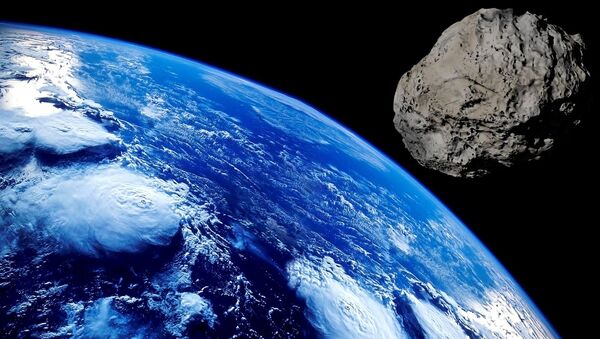NASA has dispelled concerns that the Asteroid 2006 QQ33, expected to pass by Earth at 7.4 million kilometres and, therefore, branded “potentially hazardous”, would hit us. Lindley Johnson and Kelly Fast, entrusted with tracking such "near Earth objects" at NASA's Planetary Defense Coordination Office, has told CNN that there is nothing to fear. Johnson even dubbed this asteroid, rated as moderately-sized, “more or less benign”.
The rendezvous with this nearly 570-metre-wide heavenly visitor is scheduled for 10 August. An asteroid of this magnitude could destroy an enormous area, as the outlet points out, noting that a significantly smaller space rock, which was only 17 metres wide, exploded near the Russian city of Chelyabinsk, injuring about 1,000 people.
Objects, which are similar to Asteroid 2006 QQ33, are said to be rather frequent guests venturing relatively close to Earth. About 6 space rocks of such size approach our planet each year. At the same time, NASA says that there are 900 asteroids with a diameter of more than 1 kilometre orbiting around the Sun, while the biggest is nearly 34 kilometres wide.
The US space administration and other countries’ agencies are keeping an eye on such objects, cataloguing and tracking them. According to NASA, if any object gets dangerously close to Earth, it would launch a space campaign to deflect the intruder.
One of the “asteroid hunters” even acknowledged that there might be space rocks that they do not know about, which could pose a threat to our planet.
"It's the ones we don't know about that we're concerned about”, Fast told CNN.




